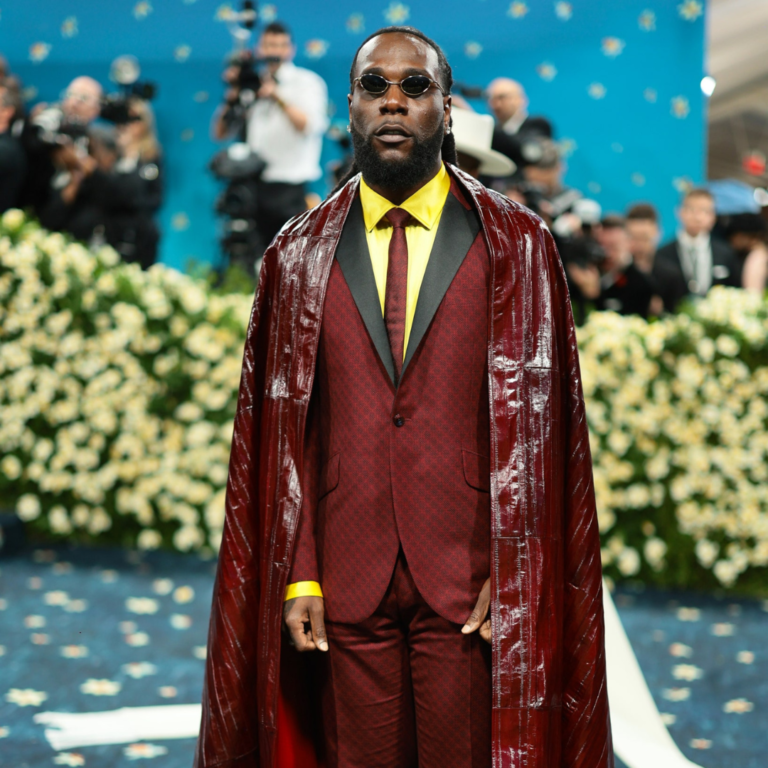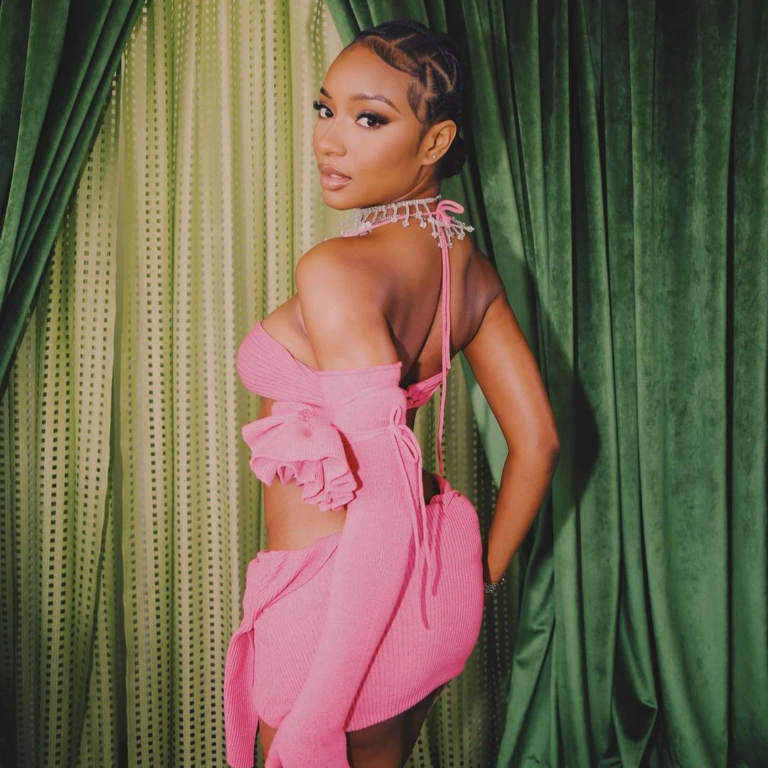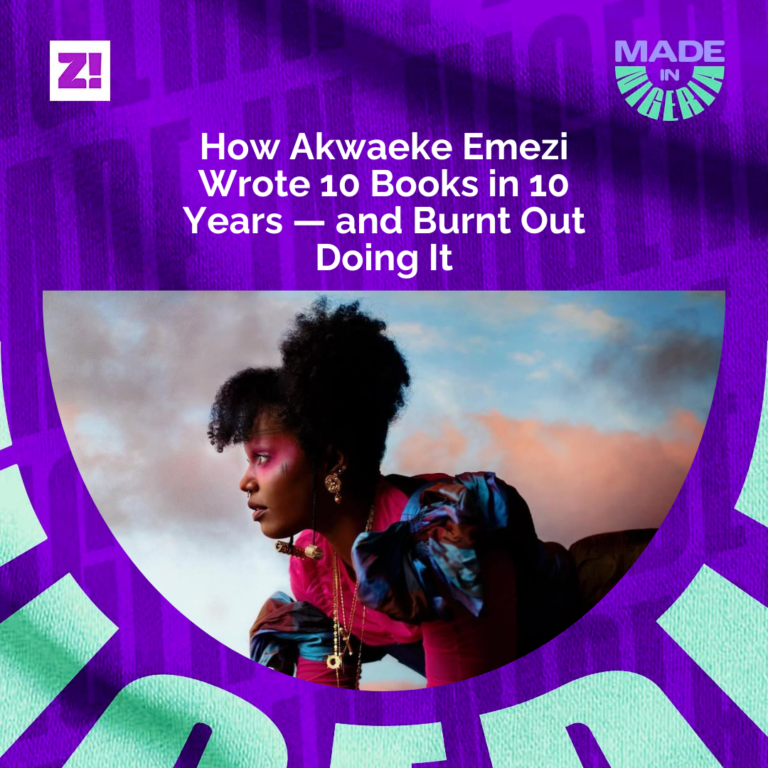Ifeanyi Nwune studied engineering at Covenant University, but he has been a creative for most of his life. As the creative director and founder of the fashion label IN Official, he has been at the forefront of pushing African fashion to the global audience.
His pieces have been worn by everyone from Davido to Stevie Wonder to Maluma. He has since built other businesses, including VVS Lagos, a platform for young designers to showcase their work and collaborate. This year, he designed the Africa International Film Festival (AFRIFF) award.
In this week’s Made in Nigeria, he opens up on how he became a multi-hyphenate creative, making opportunities for himself and reverse-engineering aso-oke.
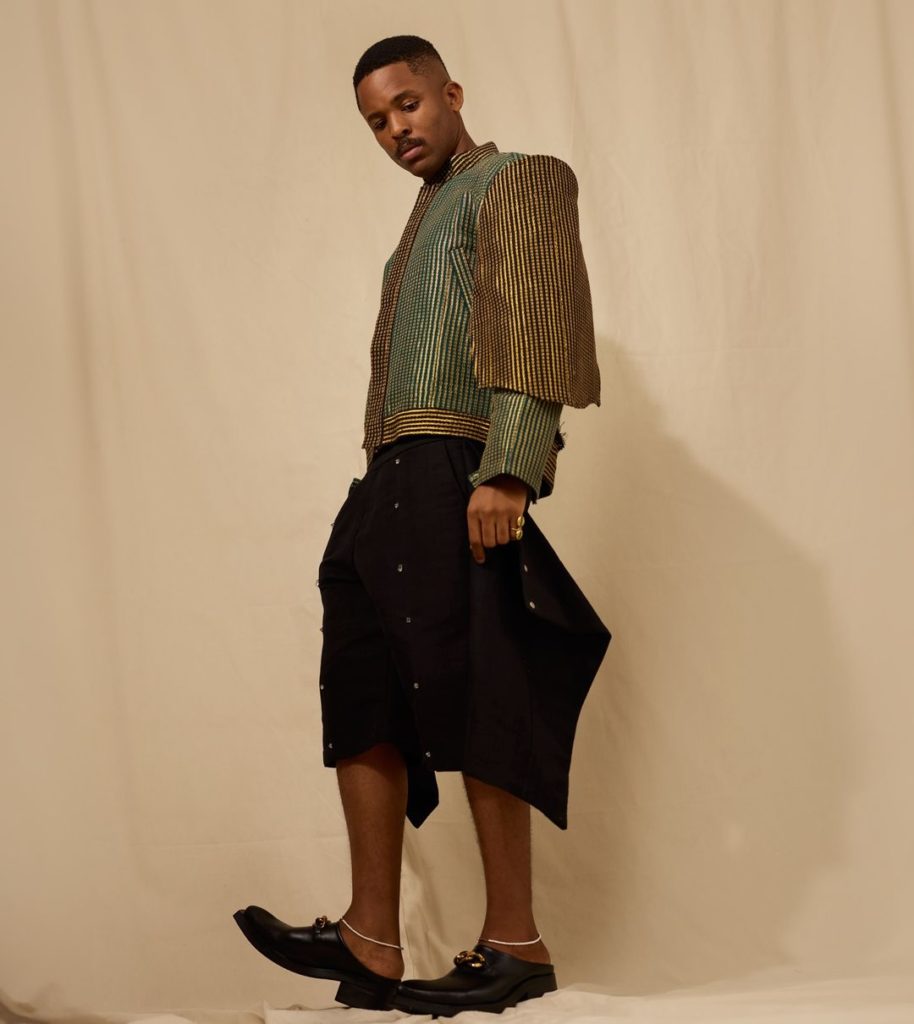
How did your relationship with fashion begin?
I was just trying out my cousin Ugo Mozie’s clothes when he came to Nigeria, and just seeing that I liked weird high-quality ideas. Before then, it was through my mom because she’d always been stylish as hell, and she’d always dressed us a bit more tailored and structured than others. That gave us a bit of an edge on how we wanted to be seen and what we wanted to wear as we grew up.
Why did you decide to become a designer?
I started as a stylist, and I always needed pieces. But I wasn’t seeing the pieces that I wanted. It was also a good way to make money. At the time, I saw one of the richest men in the world, the owner of Zara, Amancio Ortega. I was impressed because he was a cool fashion designer who owns a factory. But besides that, I just like to look and feel cool generally.
What was your first styling gig?
Arise Fashion Week in 2012. I worked as a styling assistant with Bolaji Animashaun, and it opened my eyes. I was 17. The people I met there are the people I call my fashion friends today. Months after the show, I went about emailing everybody, all the music companies. At the time, there were only 20 stylists max in the country. I emailed Chocolate City and got to style one of their artists, Nosa. I did it almost for free. Then I did Project Fame. I was assisting the head stylist at the time, and he got fired, and I got the job for a year.
How was transitioning from stylist to designer like?
It was perfect because I’d always kind of just done styling for fun. I’ve always hated it. I did it for the same reason I started my brand, there were no clothes. Styling just made sense at the time because there was no access to stuff to use. In other countries you have all the budget and all the places to get stuff from. The transition for me wasn’t nothing. I was tired. I hate being told what to do. It was a situation where I had to pick from getting called for jobs or just operating, and if I got a job or not, I was still good.
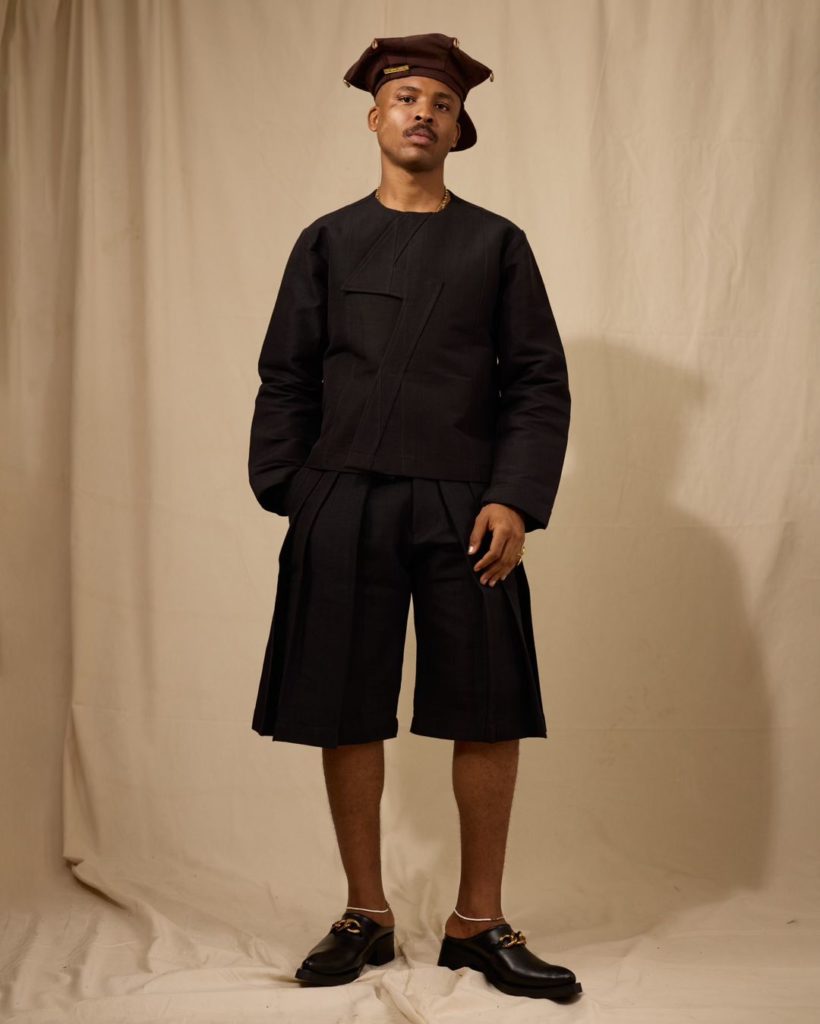
Why were you good? Were you doing other things?
For me, designing is putting your ideas into the world, while styling is bringing another person’s ideas into the earth. For designing, you dictate the terms; for styling, you have to listen. It’s like being a model, which I was for three months when I was younger. But it didn’t make sense to me because I don’t like listening to people that much.
When I said I was good, I meant to just keep creating my own world and wait for people to align. But also, there was no time in my life when I was only doing fashion. It doesn’t make sense. We are too young to stick to one thing. I’ve always done different things.
Once I dabbled in music, I started figuring out how to get into the music business and actually make something from it. It’s about gaining opportunities from it, not just calling yourself a designer, stylist, or makeup artist. But how much are you making? And what is your structure, and how often do people return to you? Do you deliver? That was what was beaming in my head. It’s not just about calling yourself a name.
It’s just being focused on the vision of making a change in the ecosystem, whether it’s fashion, art, music, or even politics. I’m still in this process every single day, doing things that people don’t expect of us. There is no time you should be doing one thing. It’s just laziness, in my opinion.
Have you considered a lack of opportunity as a reason someone might be doing one thing?
People think you have to wait for opportunities to come to you, but sometimes you have to set them up. It might not come this year. People are just a bit impatient. Sometimes, something that you put your mind to now might not pay off today.
With the styling thing, it might sound all fun now, but back then, I wasn’t making any money. I was just managing before I could get to a place where I could build a business. Making money took me about six years. So that’s what I was saying about opportunities. I took the opportunities that I could take just to build these relationships now. People need to dabble with their creative energy. You might never know what you’ll be good at. Don’t just stick to making clothes. That is not the way to be a billionaire. You have to be diverse and solve problems.
How would you say you’ve changed the ecosystem?
I don’t know. But I think I just diversity and show people it’s more than as a fashion designer you have to do just fashion. I think nobody in the industry—at least in Africa—has been able to cross-bridge the entertainment sector like I have—music, art and fashion. I think Virgil did a lot of that. Daily Paper too. It is not just about one expression.
An important contribution we’ve made is pretty much just showing people that it’s possible. Before now, it’s been older guys popping in fashion or people who are wealthy as hell. For me, I came from nowhere and just continued.
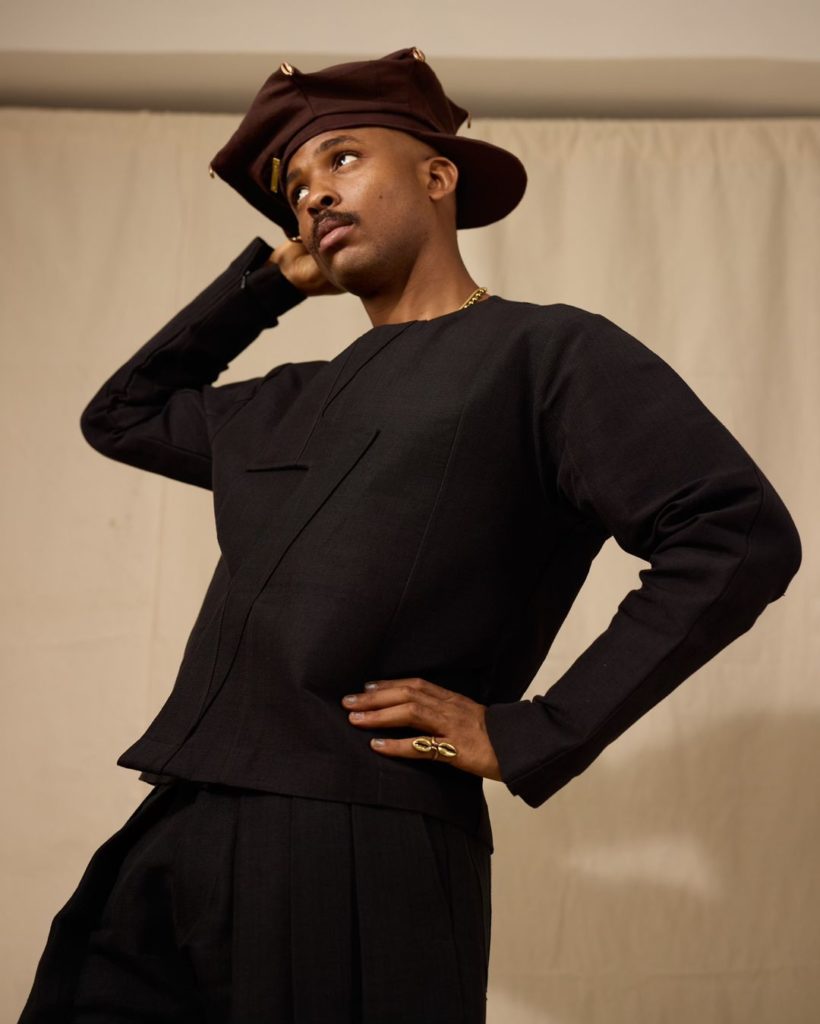
When was the last time you created an opportunity for yourself?
I just did that before this call. I push jobs all the time, every single day of my life. My role is pushing jobs. If you’re not doing that for yourself, then you haven’t started working. You don’t own a business yet.
How were you able to build structure in your company?
Building an efficient team that can execute your ideas has been game-changing because if you don’t have a team that can make your ideas happen, it will just be a long process.
How have you maintained your customers and relationships for years when as you said, you hate being told what to do?
My hating being told what to do doesn’t mean I don’t listen. I always listen to every single customer complaint and figure out how to make their experience better. However, I meant I don’t like listening to people because I’ve worked in companies before, and I know how it is when people are not really doing anything, and they just try to instruct you. “Come this time, go there.” I don’t have to answer to no one. If you order a piece from me that is not ready-to-wear I’ll let you know the time and day that it will be ready. It’s us telling you, but it’s you who made the request. We are definitely still growing and trying to understand customer service as much as possible.
Will you describe yourself as a humble person?
Yes, I’ll say I’m humble, but I’ve heard that people beg to think otherwise.
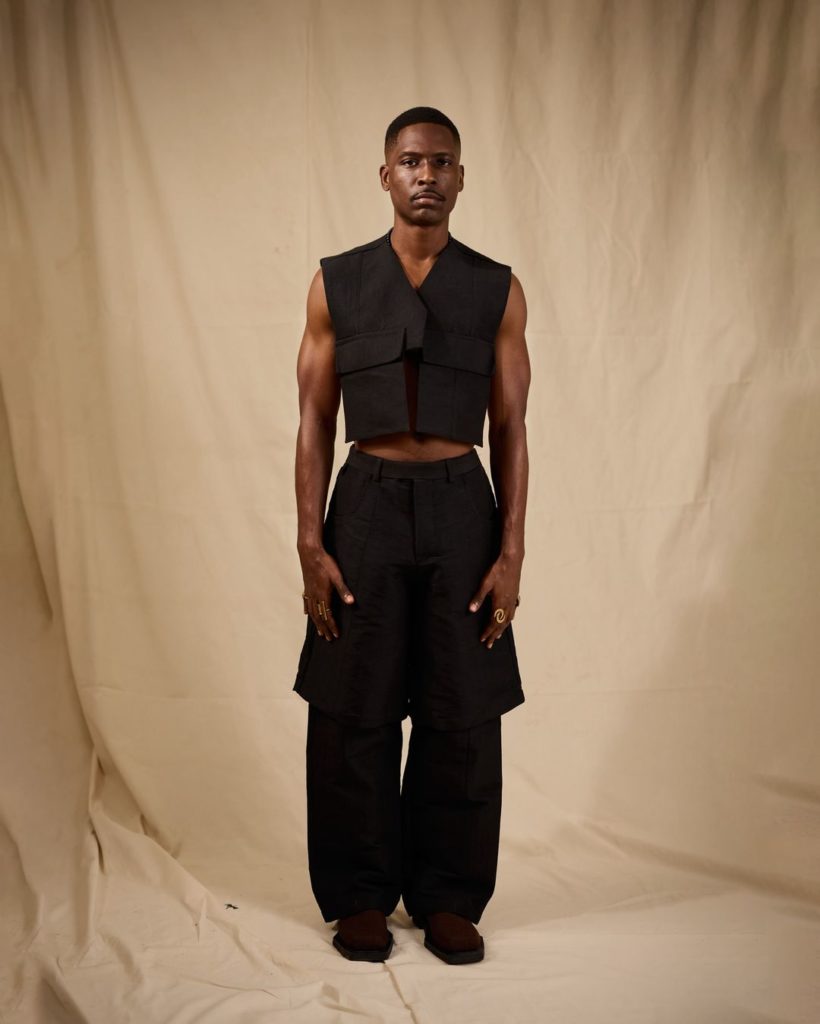
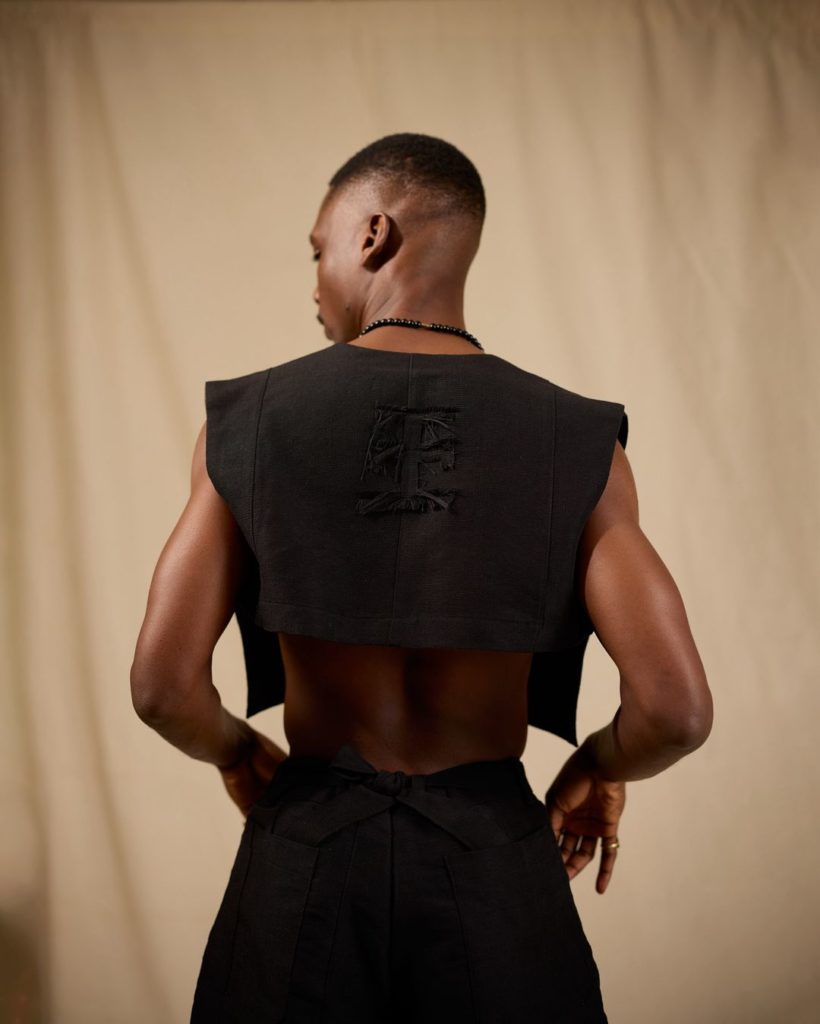
Why do people think otherwise?
Maybe because of how I carry myself. Personally, I don’t like to carry my accomplishments or my ideas and access on my forehead. I’m the most humble person. If I meet a person now, I’ll relate to them on their level. I don’t need to tell them nothing that they don’t need to know. I’m not the kind of person that will say, I have this, that, nah nah nah. If I meet someone and the person is talking about a little project they worked on, I’ll tell them about a little project I worked on.
I come from a place of just knowing myself, so I’ve never had to be someone else or act. I’ve just had to be and step into what my life should look like. You have to just know yourself and what you can offer to the world. At the end of the day, all this is not from you it’s really just from God. I don’t see the reason to not be humble. People tend to confuse knowing yourself and what you’re saying as pride or ego. It can be that, but it’s not a bad thing. It’s just self-awareness. It’s either that or you’re not going to know your worth. So you can pick or choose.
People have called the fashion industry very elitist. In your experience, is that a fair description of the Nigerian fashion ecosystem?
That is the description of the space globally. What is fashion? Fashion is showbiz. Showbiz is elitist. It’s not real. It’s a facade. It is like creating a world that doesn’t exist and telling everyone you can’t be a part of it. If you don’t know that showbiz is elitist, then you’re not ready for the business. It is not about how you navigate. It’s not a problem. It’s the business.
Fashion is about building worlds that don’t exist. If you don’t want to do that, you can’t compete. It’s a fucking fantasy. What is real is what you make real. It’s the brands that spend time on quality and manage their storytelling efficiently that stand the test of time.
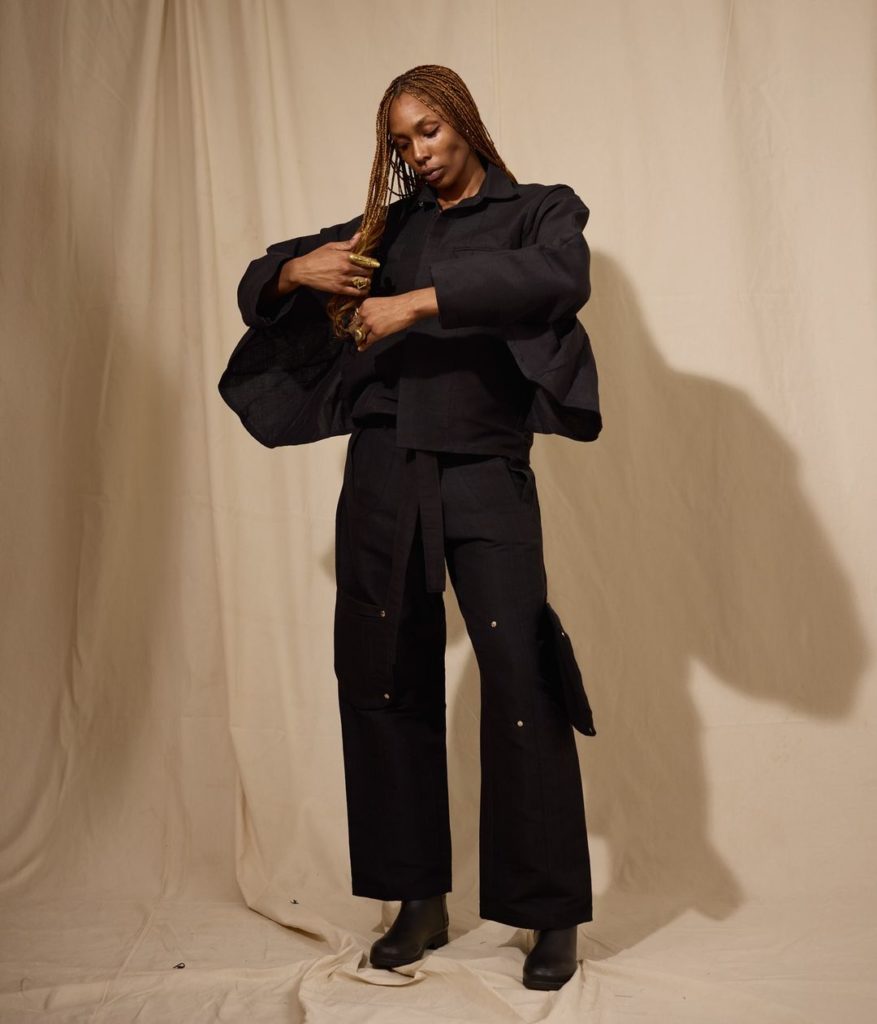
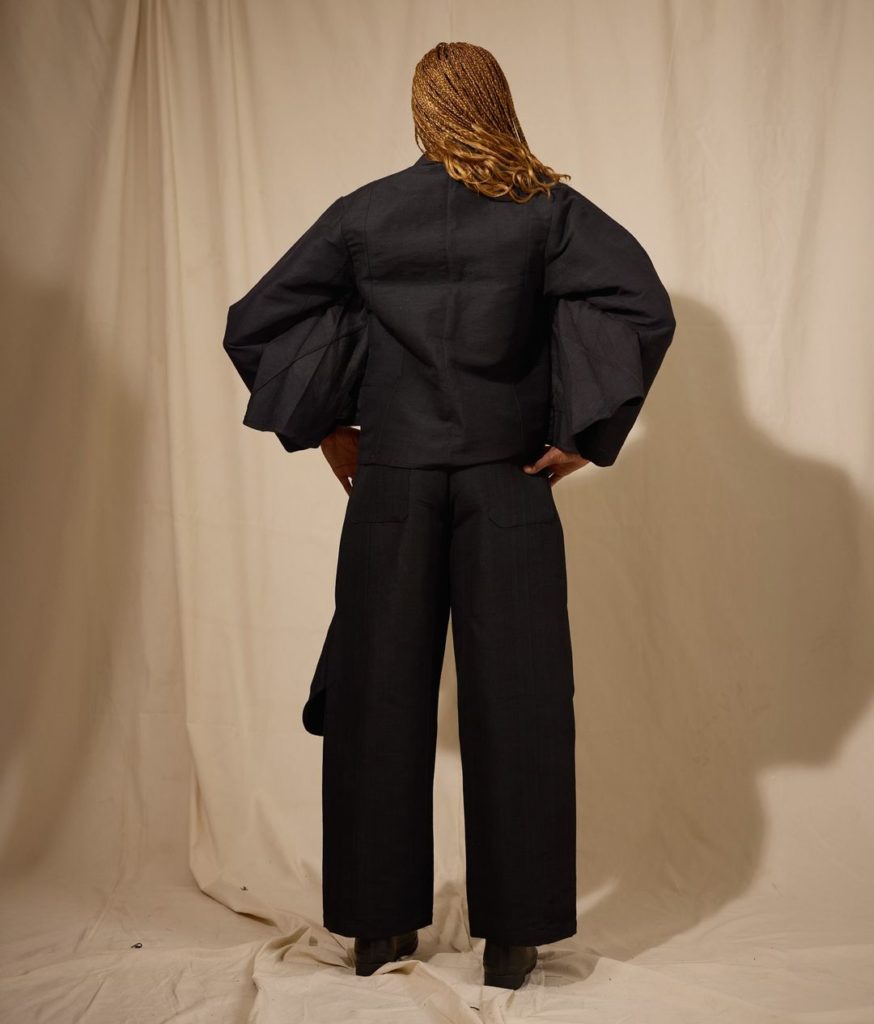
Do you see yourself as the creative director of a fashion house owned by someone else?
A lot of my designer friends don’t really love that. But I see myself in that world for a few reasons. By God’s grace, I’m able to spread my ideas and express them in different languages. If a client hires me for a Wizkid job and a beer job, the expressions will be completely different. If I’m hired to do someone’s brand and translate it into their own language, that will be completely different from what I’ve ever done with my brand. I see myself doing that. At the moment, we produce for other brands as well. Myself and Ugo have our own factory UMIN. Under the factory, we produce my brand and Ugo’s brand.
What makes an IN Official piece stand out?
I think there is something spiritually up with my clothes. I don’t know what it is, but most people connect with it more than they connect with other pieces. Maybe the love that is put into the clothes. Every piece is very intentional. I can make a whole collection, and I won’t wear it because I can’t afford it. But I feel like people who can afford it should buy it.
We come from a place of love. We have personal relationships with every single aspect of the business. We ensure it’s made with the best spirit—no bad energy. I think also the idea of resilience and just continuing is a quality people like. We’ve been able to express ourselves in different eras while keeping the ethos of our design.
We express traditional standard silhouettes that everybody expects but in a more global definition. Because I’m making clothes for an older guy doesn’t mean it will be some basic native. We try to make everything look youthful, young and fresh.
What has your experience been like working with young people?
It’s been a bit hard, I’m not gonna lie. I had one walk out on me at a fashion show. They did something that was not their job. I told them it didn’t look good, and we had an argument, and then they just left. They fired themself. It’s crazy to me because I know how many times I’ve been so pissed at so many people, but I just can’t leave.
Many Nigerian fashion houses now experiment with aso-oke in their pieces, including IN Official. Do you think this is just a phase?
I don’t think it’s a phase, just on a historical level. It’s original to us, and it’s an opportunity to give back to the community that built that story. I’ve been experimenting with it and trying to reverse-engineer it so that we can come up with new ideas for it that people have not seen before and not just do what everybody else is doing.
But I also think we don’t understand what Aso-oke is. I think it’s that word “Aso-oke.” We need to throw away that word first. The first time I heard it, it was called Aso-ofi. It’s a lot more than just Aso-oke. India has its own version, Turkey, Morocco have theirs, and in the end, it’s Aso-oke. Everyone has had woven fabrics forever. Igbos have Akwete. It’s just the same thing. It’s just fabric. The whole Aso-oke thing makes it look like we are going back to some native time where everybody is using some native fabric. This is no native fabric.
In Morocco, we went to this place where they were weaving so much with wool and fleece. And we’re just talking about Aso-oke when there are a lot more things to be doing with woven fabrics. These fabrics should be reverse-engineered to be doing other things. But we’ve kind of boxed ourselves with that name. The story of starting in Osun is cool. But in 2024, it’s beyond that. We need to know that this is a fabric that can be made into anything. We can even make silk Aso-oke. We can make anything.
We are either leading the charge and making people align with the idea of Aso-oke and making the whole world try to import it like they do Turkey fabrics or not.
Will you call yourself a globalist?
Yes
The pushback for people with globalist ideas, especially around culture expansion, is that the cultural significance could be lost. What do you say to that?
There are people in Nigeria wearing Indian Sari every day, looking like fools, but they can’t make their fabric in different styles. We have to just be smarter about how we move and know that if we don’t fight for things that we believe in, no one will. No one cares, really.
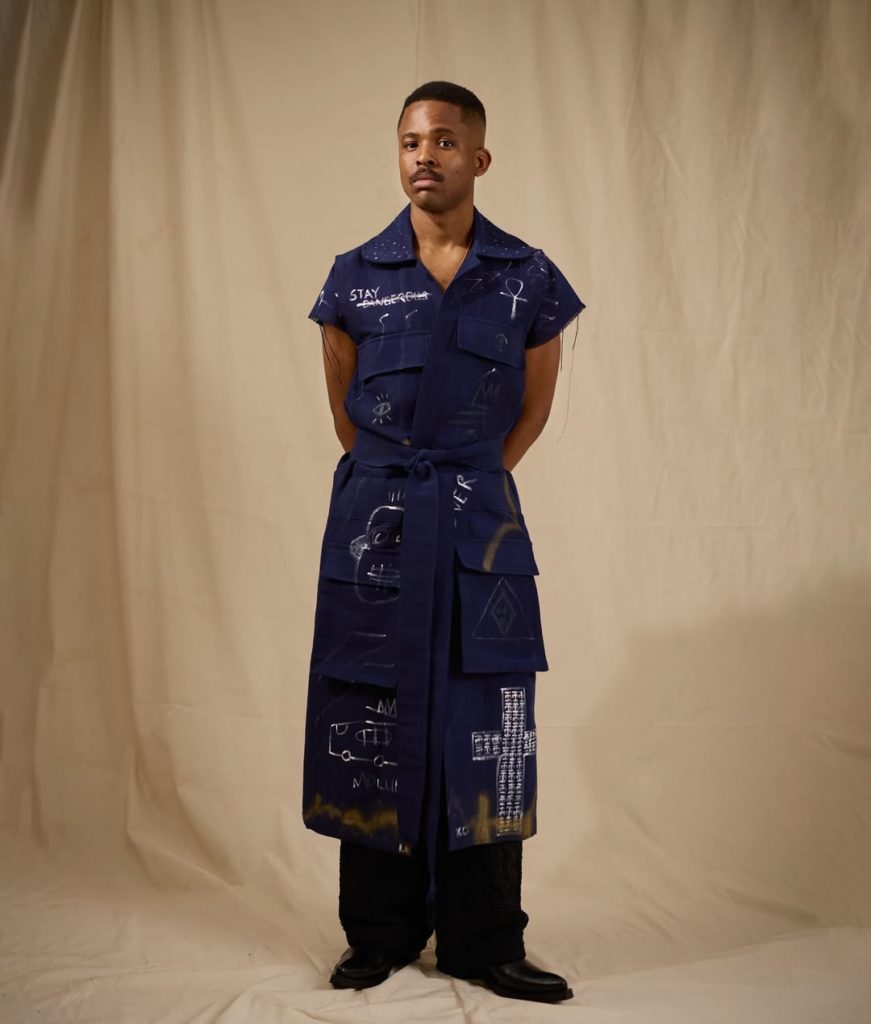
Where do you see yourself in 10 years?
I don’t know, honestly. I had a near-death scare when I was electrocuted when I was little. So every single day is a blessing. In 10 years, I pray to God I’m still here and able to do things. I know the brand will be in a place where we can create thousands of jobs, inspire businesses and change the ecosystem.

